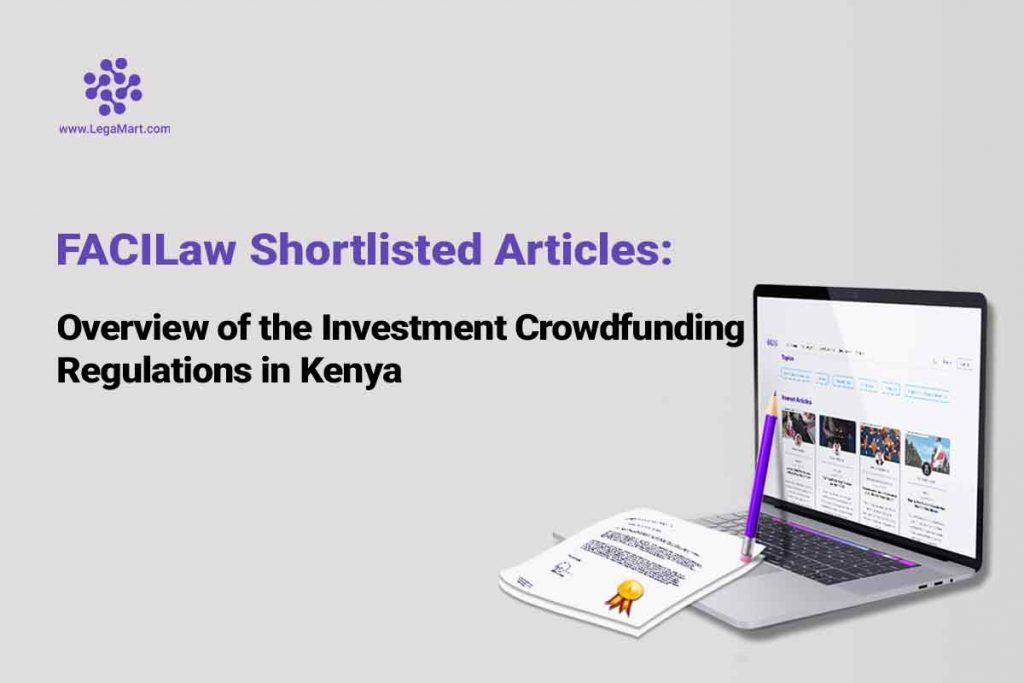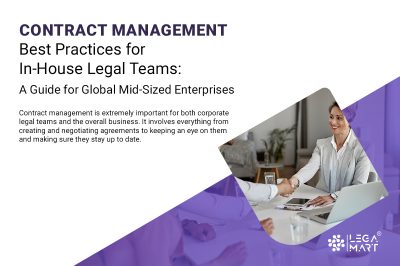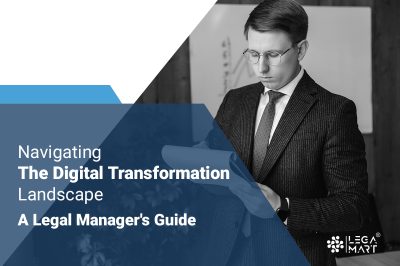This article is written by Juliet E Mwihaki
Introduction
Crowdfunding is raising money from donors to finance a project through a crowdfunding platform. A donation, reward, and investment crowdfunding are the most common crowdfunding methods. When someone calls or solicits the public for help in the form of donations, this is called donation crowdfunding. M-Changa Africa is a good example of a donation crowdfunding site.
Reward crowdfunding is a way to raise money where donors get some kind of product or service in exchange for their money. One example is Patreon, a platform for musicians and content creators to raise money based on specific membership benefits. Where donors are offered money in the form of interest on debt, profit sharing (including in the form of dividends), or revenue sharing, it is typically described as investment crowdfunding.
Shares, and debt securities, including bonds, debentures, or other instruments, embody these investment securities. Investment crowdfunding is when these investment securities are sold through crowdsourcing.
Investment Crowdfunding in Kenya was first recognized and developed by the Capital Markets Authority (CMA) in 2015. At that time, Lelapa Fund got permission to run an equity-based crowdfunding platform. Later, the CMA Regulatory Sandbox was set up to test different ways to regulate investment crowdfunding.
In 2019, the CMA Regulatory Sandbox admitted Pezesha Limited to test an internet-based crowdfunding platform where investors provide loan facilities structured as loan notes to small and medium-sized enterprises (SMEs). As of September 20, 2022, the Capital Markets (Investment Based Crowdfunding) Regulations (also known as the regulations) regulate investment-based crowdfunding in Kenya.
General Overview of the Investment Crowdfunding Regulations in Kenya

The regulations seek to monitor systems that allow eligible companies to collect money from individuals or entities in exchange for shares of the ownership of the company and the chance to share in the profits. The money to be raised by the eligible companies will be used to fund projects or businesses. The regulations apply to any investment-based crowdfunding platform set up, maintained or operated in Kenya.
One is considered to be running an investment-based crowdfunding platform in Kenya if the platform is set up in Kenya, if it is located outside Kenya but promotes crowdfunding activities to Kenyan investors, or if key components of the forum are physically located in Kenya even if some of its parts are located outside Kenya. If any of the above conditions are met, a license from the CMA is needed. The crowdfunding platform is any technology that facilitates interactions among the crowdfunding participants.
The regulations tend to focus on the operator of the crowdfunding platform, the investors, the issuers and the crowdfunding transaction.
Regulation of the Operator
The operator is any entity permitted by the CMA to facilitate transactions involving the offer or sale of investment instruments through a crowdfunding platform. The regulations mandate that an operator of an investment crowdfunding platform has to be duly licensed by the Capital Market Authority (CMA).
As part of the licensing requirements, operators must be limited by shares with a minimum paid-up share capital of five million shillings and a minimum liquid capital of ten million shillings or eight percent of their liabilities, whichever is greater. The next step in the registration process is for the applicant to fill out the ‘Application Form for a Licence to operate as a Crowdfunding Platform Operator’ and file it with the CMA.
The application form must be accompanied by various documents that give detailed information about the operator’s rules of operations, management, financial condition, organizational structure, human resource, business plan, good record-keeping procedures, the offer document and terms of the offer.
Also, as part of the application process, one must submit to the CMA fraud detection and prevention measures, a data protection policy compliant with the relevant Kenyan laws, and a policy on the prevention of anti-money laundering and terrorism financing.
The application process is complex, therefore, expensive. Therefore, it is imperative to pay attention to details during the application process, as one can be liable for any false or misleading statements in the offering document.
Regulation of the Crowdfunding participants: Issuers and Investors
The other crowdfunding participants are the issuer and the investor. The issuer is the company that sells the investment instrument to raise money. The investment instrument is to be hosted on the crowdfunding platform for purposes of crowdfunding. On the other hand, the investor is the person or entity that seeks to invest in a crowdfunding platform.
There are two categories of eligible issuers. Micro, small or medium enterprises registered in Kenya that have been operating for at least two years with good corporate governance practices are eligible. The other is start-up companies with a good operating track record and corporate governance record. As for start-up companies, Kenyan companies must have been incorporated no more than ten years ago to develop an innovative and scalable product or service.
For these issuers, the total amount they can raise within twelve months is up to Kenya Shillings one hundred million. However, if an issuer wants to raise more than Kenya Shillings one hundred million, the duty falls on the operator of the crowdfunding platform to request the Capital Markets Authority for a ‘no objection’. However, the regulations prohibit publicly listed companies and their subsidiaries, entities with a poor governance record, and entities that intend to use the funds to provide loans or invest in other entities from raising funds through a crowdfunding platform.
Investors that are permitted by the regulations to invest in crowdfunding investments are sophisticated investors and retail investors. For retail investors, their investment limits are capped at Kenya shillings one hundred thousand. Sophisticated investors have been defined and authorized in the Capital Markets Acts, including authorized schemes, institutions like banks and their subsidiaries, insurance companies, cooperative societies and statutory funds.
Regulation of the Crowdfunding Transaction
The crowdfunding platform operator must develop a standardized offer document for offering securities and make it available on the crowdfunding platform. It is then the responsibility of the issuer, among other things required by the operator, to outline the investors’ rights and ownership of the investment instruments to be issued and submit the standardized offering document to the crowdfunding platform operator for approval to crowdfund on their platform, as well as provide the mandatory disclosures.
Also, it is the issuer’s responsibility to disclose the period of the offer that shall remain open and the minimum amount for an offer to be deemed successful. The offer must also include a cooling-off period where the investor can back out of an offer or agreement to buy the investment instrument by sending a notice in the prescribed manner. The funds raised through the platform must be used exclusively for the stated purpose.
Conclusion
For economies to progress, there is a need for entities to have alternative sources of finance. Therefore, the enactment of the regulations is commendable as they are a means to provide affordable and alternative financing. They also act as a means of protecting investors’ funds as well as ensuring efficient, orderly, and fair operation of this market segment and its players.
However, there is a need to monitor the implementation of the regulations since anyone operating an investment-based crowdfunding platform must obtain a license within twelve months before the regulations.
Liked this article? Want to improve your legal knowledge? Keep following our LegaMart blog for regular legal updates!




